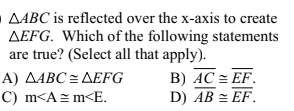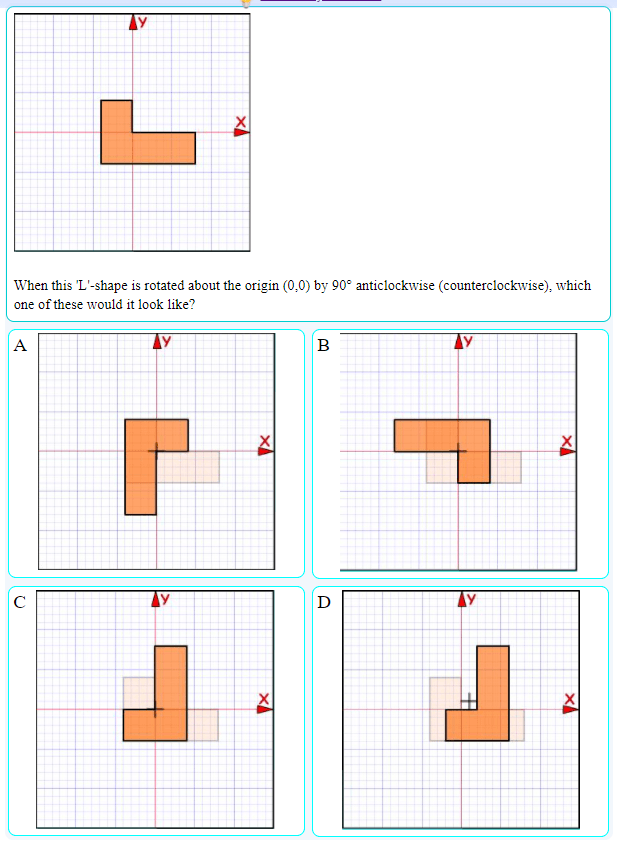Where does a point have to be if it does not change its position after a reflection?
On the line of reflection
What are you doing to an object when you translate it?
Sliding it
When there is no direction listed, which way do we assume to rotate?
ccw
Draw a perpendicular bisector of segment AB

What do we call the transformation that makes a shape bigger or smaller?
Dilation
Where would the line of reflection need to be to reflect an isosceles triangle ontop of itself? Draw a picture :D
down the middle of the triangle.
If I tell you to translate an object by (4,0), what will the object do?
move 4 units right
Write a rule for this rotation:

Rotation 90 degrees clockwise about the origin
Inscribe a square in a circle.
Create 2 congruent segments using a ruler and a compass
Graph rectangle DEFG after a reflection over the line y=x. D(5,5) E(5,8) F(8,8) G(8,5)
Write a rule for the translation:
Translation (8,4)
Create a rectangle with one of the sides on the x axis. Rotate the figure 180 degrees.
Construct a perpendicular line through line m that passes through point p.
What word means same shape and same size?
Congruent
Reflect a triangle fully in quadrant 3 across y=-1
What is the name of the "line" given that tells you where to translate an object without a coordinate grid?
vector
What might be another way to rotate an object 270 degrees clockwise about the origin?
Rotate it 90 degrees counter clockwise
Construct an equilateral triangle using a compass

A,C,D
Suppose you do not have a coordinate grid. When translating a shape by a given vector, how can you know for sure you put each point in the right spot?
The line from the point on the pre-image to the point on the image will be parallel to the vector.

C
Construct a line parallel to line m that passes through point p.
What type of transformations are rotation, reflection, and translation?
rigid transformations
